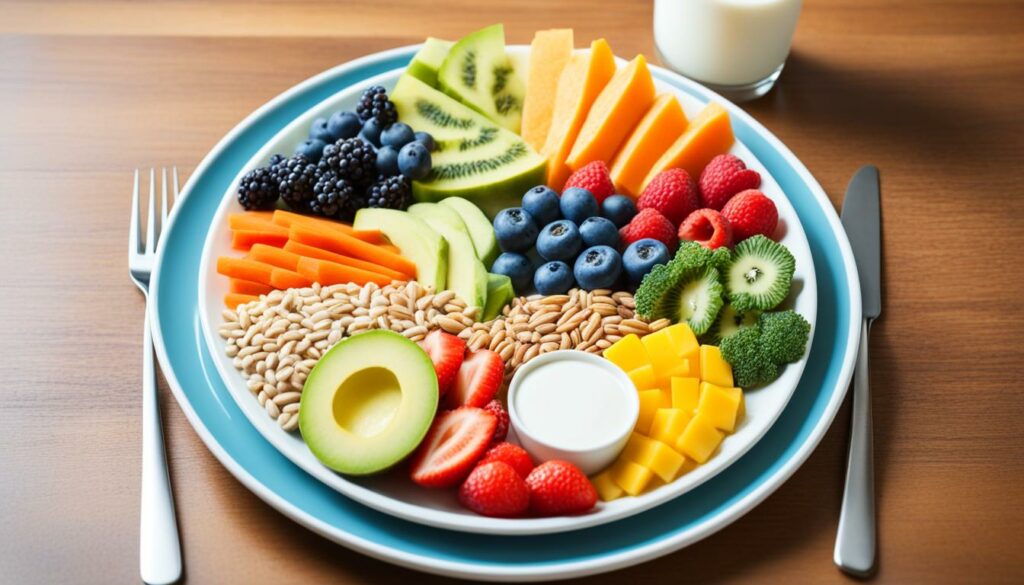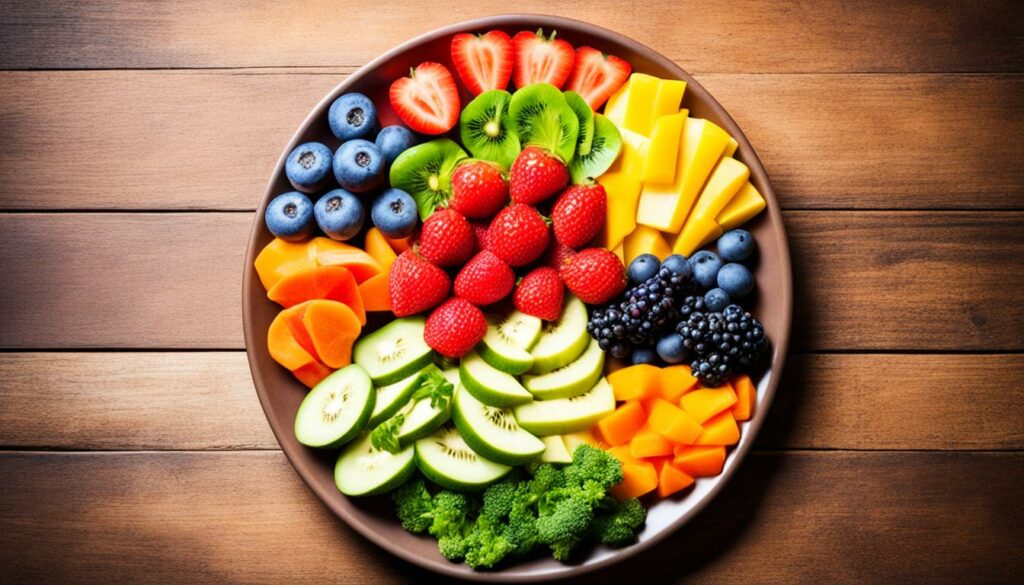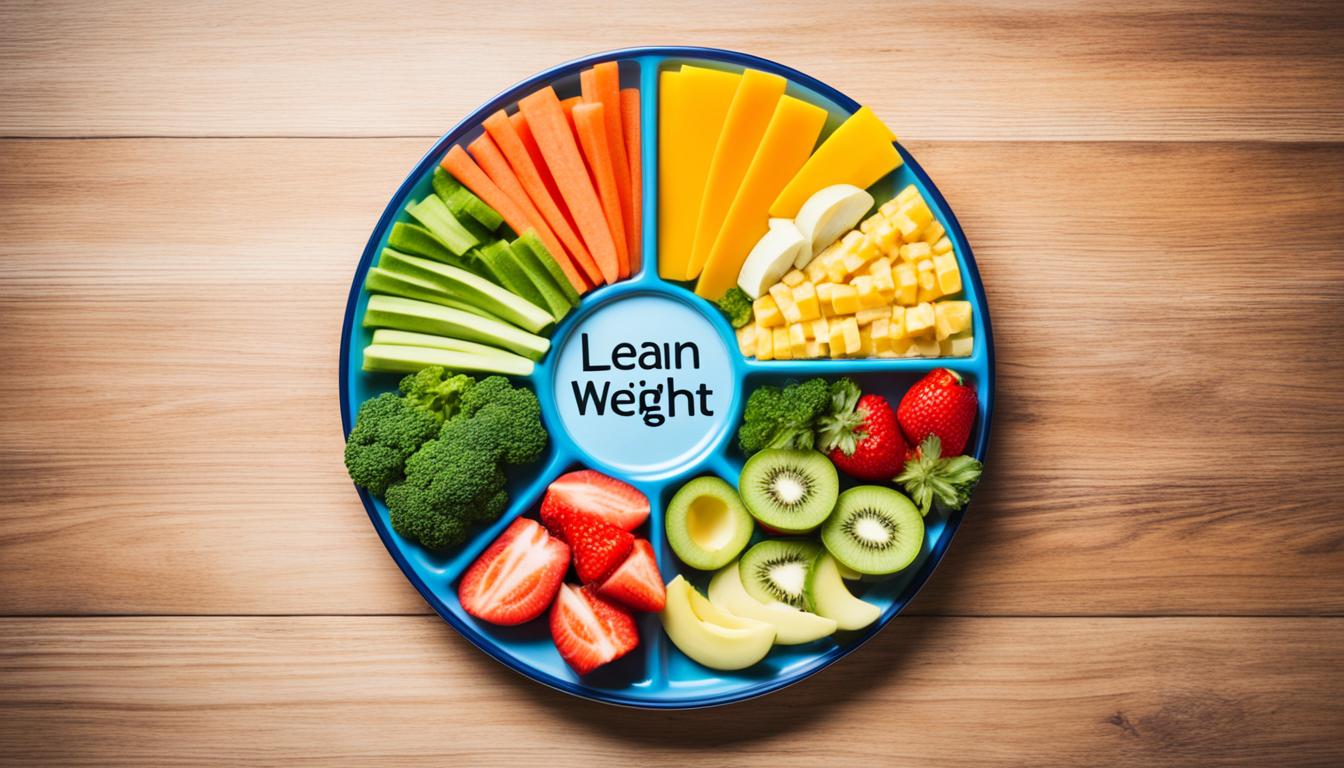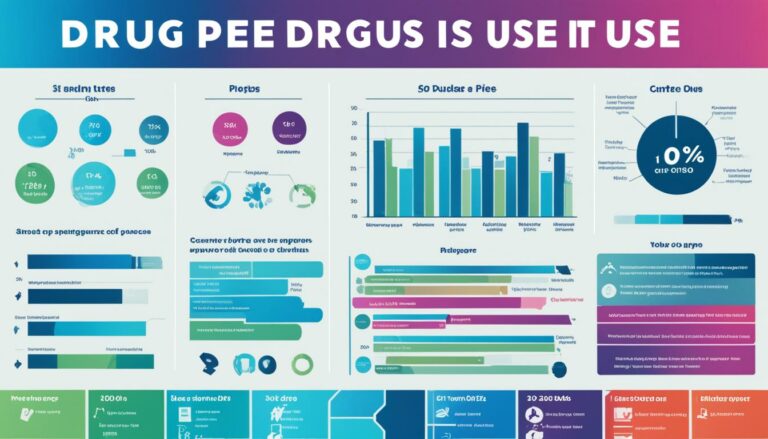Healthy Weight Gain Tips for Teens
Gaining weight can be a challenge, especially for underweight teenage athletes. However, it is essential to focus on healthy weight gain strategies in order to support their growth and athletic performance. This article will provide valuable tips and guidance on how to achieve weight gain in a safe and effective manner for teenagers.
Teenage weight gain is a topic that is often overlooked, but it is important to understand the significance of maintaining a healthy weight during this crucial stage of development. Many factors such as high activity levels, poor eating habits, or a lack of balanced nutrition can contribute to low body weight in teens. By understanding the importance of healthy weight gain, teenagers can take the necessary steps to improve their overall health and well-being.
When it comes to weight gain in teenage athletes, several factors come into play. High energy needs, poor eating habits, and an inadequate intake of essential nutrients can all impact weight. By recognizing and addressing these factors, teenagers can develop an effective weight gain plan that meets their individual needs.
One of the key steps in achieving healthy weight gain is crafting a well-rounded meal plan. This involves incorporating a variety of nutrient-rich foods from all food groups to provide the necessary calories and nutrients for growth and athletic performance. By following a well-designed meal plan, teenagers can fuel their bodies properly and support healthy weight gain.
Choosing the right foods is crucial when aiming to gain weight. Calorically dense and nutrient-rich foods should be prioritized. Protein sources, whole grains, dairy products, fruits, vegetables, and healthy fats are all important components of a weight gain diet for teens. Additionally, weight gain supplements may be considered, but it is important to consult with a healthcare professional or registered dietitian before incorporating them into the diet.
In order to increase caloric intake, teenagers should implement strategies that are both practical and effective. This may include eating more frequent meals and snacks, including calorie-dense foods, and adding healthy fats to meals. It is also crucial to stay hydrated and consume calorie-rich beverages to support weight gain.
The timing and structure of meals and snacks play a significant role in weight gain for teenagers. Maintaining a consistent eating schedule and spacing meals and snacks throughout the day can optimize nutrient absorption and support weight gain. This section will provide recommendations on how to structure meals and snacks for optimal weight gain.
Monitoring weight gain progress and adjusting the plan as needed is essential for success. By tracking weight gain and making necessary changes, teenagers can ensure continued progress towards their goals. This section will address common challenges and provide strategies for overcoming them.
In conclusion, achieving healthy weight gain for teenagers involves a combination of proper nutrition, regular exercise, and a supportive environment. By following the tips and strategies provided in this article, teenagers can gain weight in a safe and effective manner, improving their overall health and athletic performance. Remember, it is important to consult with a healthcare professional or registered dietitian for personalized guidance and support.
Key Takeaways:
- Healthy weight gain is important for underweight teenage athletes.
- Factors like high energy needs and poor eating habits can affect weight in teenage athletes.
- A well-rounded meal plan and choosing the right foods are crucial for healthy weight gain.
- Increasing caloric intake and meal timing are practical strategies for weight gain.
- Monitoring weight gain progress and adjusting the plan as needed is essential.
Understanding the Importance of Healthy Weight Gain for Teenagers

Many teenagers struggle with maintaining a healthy weight, whether due to high activity levels, poor eating habits, or other factors. However, achieving a healthy weight is crucial for their overall health and well-being. Being underweight can have serious consequences on physical and mental health, impacting growth, development, and athletic performance.
Teenagers who are underweight may experience fatigue, weakened immune function, and an increased risk of illness and injury. They may also have difficulty building muscle mass, which is important for athletic performance and overall strength. In addition, being underweight can affect hormonal balance, menstrual regularity in girls, and bone health, leading to an increased risk of fractures.
It is important for teenagers to understand that healthy weight gain does not mean indulging in unhealthy eating habits or consuming excessive amounts of unhealthy foods. Instead, it involves adopting a balanced and nutritious diet that provides the necessary calories and nutrients for growth and development. By focusing on healthy weight gain strategies, teenagers can improve their overall health and set a strong foundation for lifelong well-being.
One effective way to achieve healthy weight gain for teenagers is through a combination of proper nutrition and regular exercise. A well-rounded diet should include a variety of nutrient-rich foods from all food groups, including lean proteins, whole grains, fruits, vegetables, and healthy fats. Regular exercise, such as strength training and cardiovascular activities, can help build muscle mass and improve overall fitness.
It is important to note that each teenager’s weight gain journey is unique, and it is essential to consult with a healthcare professional or registered dietitian to create a personalized weight gain plan. They can provide guidance on caloric intake, portion sizes, meal planning, and address any underlying medical conditions that may be contributing to underweight. By working with a healthcare professional, teenagers can ensure they are gaining weight in a safe and sustainable manner.
As a healthcare professional explains, “Gaining weight in a healthy way involves making positive lifestyle changes, such as adopting a balanced and nutritious diet and engaging in regular exercise. It’s important to focus on overall well-being and not just the number on the scale.”
The Potential Consequences of Being Underweight
Being underweight during the teenage years can have various consequences on both physical and mental health. Here are some potential consequences:
- Weak immune system and increased susceptibility to illnesses and infections
- Poor muscle development and reduced athletic performance
- Irregular menstrual cycles and reproductive health issues in girls
- Delayed puberty and growth
- Nutrient deficiencies and compromised organ function
- Weakened bones and increased risk of fractures
- Low energy levels and fatigue
- Poor concentration and cognitive function
- Decreased self-esteem and body image issues
Gaining weight in a healthy manner can help alleviate these consequences and support overall well-being and development during the teenage years.
| Benefits of Healthy Weight Gain for Teenagers | Consequences of Being Underweight |
|---|---|
|
|
Factors Affecting Weight in Teenage Athletes

When it comes to weight gain in teenage athletes, several factors can influence their body weight. Understanding these factors is crucial in developing an effective weight gain plan that addresses their unique needs. Let’s explore some of the key factors that can affect weight in teenage athletes.
1. High Energy Needs
Teenage athletes often have higher energy needs due to their active lifestyle and intense training sessions. They require more calories to fuel their bodies and support growth and performance. Without meeting these increased energy demands, weight gain may be challenging.
2. Poor Eating Habits
Some teenage athletes may have poor eating habits, such as skipping meals, relying on unhealthy snacks, or consuming insufficient amounts of food. These habits can contribute to inadequate calorie intake and hinder weight gain progress. Adopting a balanced and regular eating pattern is essential for healthy weight gain.
3. Lack of Balanced Nutrition
A balanced diet that includes a variety of nutrient-rich foods is vital for overall health and weight gain. Teenage athletes may lack certain nutrients if their diet is not well-rounded. Insufficient intake of protein, carbohydrates, healthy fats, and essential vitamins and minerals can hinder weight gain efforts.
“Understanding the factors affecting weight in teenage athletes is essential in developing an effective weight gain plan.”
4. Hormonal Factors
Hormonal changes during adolescence can impact weight gain in teenage athletes. Hormones play a role in regulating appetite, metabolism, and body composition. Imbalances or fluctuations in hormone levels can affect weight regulation. It’s important to consider hormonal factors when developing a weight gain plan.
5. Gender Differences
Teenage boys and girls may experience weight gain differently due to gender-related factors. Boys generally have higher calorie requirements and may focus on gaining muscle mass, while girls may have unique nutritional needs related to hormonal changes. Tailoring the weight gain plan to gender-specific requirements is essential.
6. Psychological Factors
Psychological factors, such as body image concerns, stress, or disordered eating patterns, can impact weight gain in teenage athletes. These factors may influence their motivation, adherence to a weight gain plan, and overall well-being. Addressing these psychological factors is crucial for successful weight gain.
By considering these factors and tailoring the weight gain plan to individual needs, teenage athletes can overcome challenges and achieve healthy weight gain. Now, let’s move on to the next section to learn how to craft a personalized and effective weight gain meal plan.
Crafting a Healthy Weight Gain Meal Plan

Designing a well-rounded meal plan is crucial for healthy weight gain in teenagers. It is important to include a variety of nutrient-rich foods from all food groups to provide the necessary calories and nutrients for growth and athletic performance. By following a balanced weight gain diet for teens, teenage girls and boys can achieve healthy weight gain in a safe and sustainable way.
A healthy weight gain meal plan for teenagers should consist of a combination of carbohydrates, proteins, healthy fats, fruits, vegetables, and dairy products. Here is an example of a 3-day meal plan:
| Day | Breakfast | Lunch | Snack | Dinner |
|---|---|---|---|---|
| Day 1 | Oatmeal with banana and almond butter | Turkey sandwich with whole wheat bread, avocado, and vegetables | Greek yogurt with berries and granola | Grilled chicken with brown rice and roasted vegetables |
| Day 2 | Scrambled eggs with whole grain toast and avocado | Quinoa salad with grilled chicken, mixed greens, and olive oil dressing | Trail mix with nuts and dried fruits | Salmon with sweet potato and steamed broccoli |
| Day 3 | Peanut butter and banana smoothie with whole grain toast | Whole wheat pasta with lean ground beef or lentils and marinara sauce | Vegetable sticks with hummus | Lean beef or tofu stir-fry with brown rice and mixed vegetables |
Remember to adjust the portion sizes and caloric intake based on individual needs and activity levels. It is also important to stay hydrated by drinking enough water throughout the day. Consulting with a healthcare professional or a registered dietitian can provide personalized guidance and ensure a healthy weight gain journey.
Creating a healthy weight gain meal plan is essential for teenagers looking to increase their weight in a safe and effective way. By including a variety of nutrient-rich foods and following a balanced diet, teenagers can support their growth and athletic performance while maintaining overall health.
Choosing the Right Foods for Weight Gain

When it comes to gaining weight in a healthy and effective manner, choosing the right foods is essential. By incorporating calorically dense and nutrient-rich options into your diet, you can support your weight gain goals and ensure your body is getting the necessary nutrients for growth and development.
Here are some foods that can be beneficial for weight gain:
| Food Group | Examples |
|---|---|
| Protein Sources | Chicken, turkey, beef, eggs, fish, tofu, lentils |
| Whole Grains | Oats, brown rice, quinoa, whole wheat bread, pasta |
| Dairy Products | Milk, yogurt, cheese, cottage cheese |
| Fruits | Bananas, avocados, mangoes, dried fruits |
| Vegetables | Sweet potatoes, corn, peas, broccoli, spinach |
| Healthy Fats | Nuts, seeds, nut butter, olive oil, avocado |
In addition to these food groups, it is important to consider weight gain supplements for teenagers who may require additional support. These supplements can provide extra calories and nutrients to aid in healthy weight gain. However, it is essential to consult with a healthcare professional before incorporating any supplements into your diet.
Remember, gaining weight in a healthy manner involves a balanced diet that includes a variety of nutrient-rich foods. By making smart food choices, you can support your weight gain goals and improve your overall health and well-being.
Strategies for Increasing Caloric Intake

In order to achieve weight gain, it is necessary to increase caloric intake. Here are some practical strategies that can help teenagers increase their calorie consumption:
- Eat more frequent meals and snacks: Instead of sticking to three large meals, try eating smaller, more frequent meals throughout the day. This can help ensure a steady calorie intake and prevent feelings of fullness.
- Include calorie-dense foods: Incorporate foods that are high in calories into your diet. Examples include nuts and nut butters, avocados, dried fruits, whole milk, and cheese. These foods can add extra calories without increasing the volume of food you consume.
- Add healthy fats to meals: Include healthy fats in your meals to boost their calorie content. Use olive oil or avocado oil for cooking, add nuts or seeds to salads or smoothies, and spread nut butter on toast or crackers.
- Stay hydrated: Drink fluids that provide calories, such as smoothies, milkshakes, or 100% fruit juice. Avoid filling up on beverages that have little nutritional value, like sugary sodas.
“Increasing caloric intake is essential for weight gain. By incorporating these strategies into your daily routine, you can gradually increase your calorie consumption and support your weight gain goals.”
Remember, it’s important to consult with a healthcare professional or registered dietitian before making any significant changes to your diet or nutrition plan. They can provide personalized guidance and support to ensure healthy weight gain.
| Calorie-Dense Foods | Calories per Serving |
|---|---|
| Nuts (e.g., almonds, walnuts) | 160-200 calories (1 ounce) |
| Nut Butter (e.g., peanut butter, almond butter) | 180-200 calories (2 tablespoons) |
| Avocado | 240-300 calories (1 medium) |
| Dried Fruits (e.g., raisins, dates) | 130-200 calories (1/4 cup) |
| Whole Milk | 150 calories (1 cup) |
| Cheese (e.g., cheddar, mozzarella) | 110-120 calories (1 ounce) |
Meal Timing and Structure for Weight Gain
The timing and structure of meals and snacks can play a significant role in weight gain for teenagers. By maintaining a consistent eating schedule and spacing meals and snacks throughout the day, teenagers can optimize their weight gain efforts.
Consistent Eating Schedule
Having a consistent eating schedule helps regulate hunger and ensures that teenagers are consuming enough calories to support weight gain. It is recommended for teenagers to have three main meals and two to three snacks each day.
TIP: Encourage teenagers to have meals and snacks at similar times every day. This helps establish a routine and ensures that they are consistently meeting their calorie needs.
Meal Structure
When structuring meals for weight gain, it is important to include a balance of all macronutrients, including protein, carbohydrates, and healthy fats. This provides the body with the necessary nutrients for growth and development.
Aim to include a variety of foods from different food groups in each meal. Here is a suggested structure for a weight gain meal:
| Meal Component | Examples |
|---|---|
| Protein | Chicken, turkey, fish, tofu, beans, lentils |
| Carbohydrates | Whole grains, such as brown rice, quinoa, whole wheat bread, oats |
| Healthy Fats | Avocado, nuts, seeds, olive oil, nut butter |
| Vegetables | Broccoli, spinach, carrots, peppers |
By including a variety of nutrient-dense foods in each meal, teenagers can ensure they are meeting their calorie and nutrient needs for weight gain.
Snack Structure
Snacks are an opportunity to add extra calories and nutrients throughout the day. When choosing snacks for weight gain, opt for options that are calorie-dense and provide a good mix of macronutrients.
Here are some examples of weight gain snacks:
- Nut butter and banana sandwich
- Trail mix with nuts, dried fruits, and seeds
- Greek yogurt with granola and berries
- Smoothie made with milk, fruit, and protein powder
Encourage teenagers to have snacks between meals to increase their overall calorie intake and support weight gain efforts.
Including structured meals and snacks in a teenager’s weight gain plan can help optimize their calorie intake and support healthy weight gain. By following a consistent eating schedule and incorporating nutrient-rich foods, teenagers can achieve their weight gain goals effectively and safely.
Monitoring Weight Gain Progress and Adjusting the Plan
Monitoring weight gain progress is crucial to ensure the effectiveness of the weight gain plan for teenagers. By tracking their progress, teens and their caregivers can make necessary adjustments to optimize results and address any challenges that may arise.
To track weight gain, it is essential to keep a record of the teen’s weight on a regular basis. This can be done by weighing themselves at home or visiting a healthcare professional who can monitor their progress. By consistently tracking their weight, teens can have a clear understanding of their progress over time.
It is important to note that weight gain can be a gradual process, and small fluctuations are normal. However, if there are no significant changes in weight or if weight loss occurs, it may be necessary to seek professional help. Healthcare professionals, such as doctors or registered dietitians, can provide valuable guidance and support in adjusting the weight gain plan.
Adjusting the weight gain plan may involve making changes to the meal plan, increasing caloric intake, or modifying exercise routines. It is essential to reassess the current approach and identify areas that may need improvement. By making targeted adjustments, teens can continue to make progress towards their weight gain goals.
Common challenges to weight gain for teens include a lack of appetite, difficulty consuming large quantities of food, or medical conditions that may affect weight gain. To overcome these challenges, it may be helpful to seek advice from professionals or support groups, where teenagers can find guidance and motivation to overcome obstacles.
“Monitoring weight gain progress and adjusting the plan as needed is vital to ensure that teenagers can achieve their weight gain goals safely and effectively.”
Sample Table: Tracking Weight Gain Progress
| Date | Weight (lbs) |
|---|---|
| January 1, 2022 | 120 |
| January 15, 2022 | 122 |
| January 31, 2022 | 125 |
| February 15, 2022 | 128 |
Tracking weight gain progress using a table like the one above can provide a visual representation of the teen’s journey. It allows for easy comparison of weight measurements and identifying trends. Additionally, it can serve as a source of motivation and encouragement for teenagers, as they can see their progress over time.
Conclusion
Achieving healthy weight gain for teenagers requires a combination of proper nutrition, regular exercise, and a supportive environment. By following the tips and strategies provided in this article, teenagers can gain weight in a safe and effective manner, improving their overall health and athletic performance.
When it comes to gaining weight, it is important to focus on consuming a balanced diet that includes nutrient-rich foods from all food groups. Incorporating calorie-dense foods, such as protein sources, whole grains, dairy products, fruits, vegetables, and healthy fats, can help teenagers increase their caloric intake and promote healthy weight gain.
Additionally, maintaining a consistent eating schedule, spacing meals and snacks throughout the day, and monitoring weight gain progress are essential steps in the journey towards healthy weight gain. It is crucial to consult with a healthcare professional or registered dietitian to receive personalized guidance and support tailored to individual needs.
By following these teenage weight gain tips, teenagers can improve their nutritional status, build lean muscle mass, and enhance their athletic performance. Remember, gaining weight in a healthy way takes time and patience, so stay committed to the process and celebrate small victories along the way.
FAQ
What are some healthy weight gain tips for teens?
Some healthy weight gain tips for teens include consuming a well-rounded meal plan, choosing calorically dense and nutrient-rich foods, increasing caloric intake, maintaining a consistent eating schedule, and monitoring weight gain progress.
Why is healthy weight gain important for teenagers?
Healthy weight gain is important for teenagers as it supports their overall health and well-being. It provides the necessary calories and nutrients for growth and athletic performance, helps maintain hormone balance, supports bone development, and enhances immune function.
What factors can affect weight in teenage athletes?
Several factors can affect weight in teenage athletes, including high energy needs, poor eating habits, a lack of balanced nutrition, inadequate caloric intake, and excessive physical activity.
How can I create a healthy weight gain meal plan for teens?
To create a healthy weight gain meal plan for teens, include a variety of nutrient-rich foods from all food groups, focus on calorie-dense foods, incorporate protein sources, whole grains, dairy products, fruits, vegetables, and healthy fats, and consult with a healthcare professional or registered dietitian for personalized guidance.
What foods are beneficial for weight gain in teenagers?
Foods that are beneficial for weight gain in teenagers include lean meats, poultry, fish, eggs, whole grains, dairy products, nuts, seeds, fruits, vegetables, and healthy fats like avocados, olive oil, and nut butters.
What are some effective strategies for increasing caloric intake?
Some effective strategies for increasing caloric intake include eating more frequent meals and snacks, including calorie-dense foods, adding healthy fats to meals, using larger portion sizes, and consuming calorie-rich beverages like smoothies or shakes.
How should meals and snacks be timed and structured for weight gain?
It is important to maintain a consistent eating schedule and space meals and snacks throughout the day. Aim to have three balanced meals and two to three snacks evenly spaced to provide a steady supply of nutrients and calories.
How can I monitor weight gain progress and make necessary adjustments?
You can monitor weight gain progress by regularly weighing yourself and keeping track of your progress. If you’re not seeing desired results, consult with a healthcare professional, registered dietitian, or coach to make necessary adjustments to your weight gain plan.
Can weight gain supplements be helpful for teenagers?
Weight gain supplements may be helpful for teenagers who struggle to meet their caloric and nutrient needs through food alone. However, it is important to consult with a healthcare professional or registered dietitian before using any supplements to ensure safety and effectiveness.







